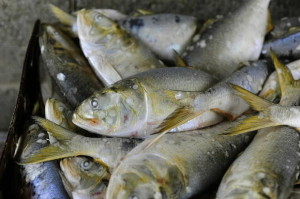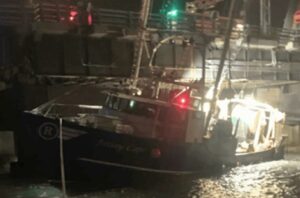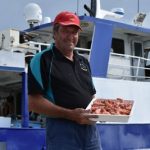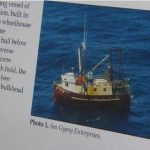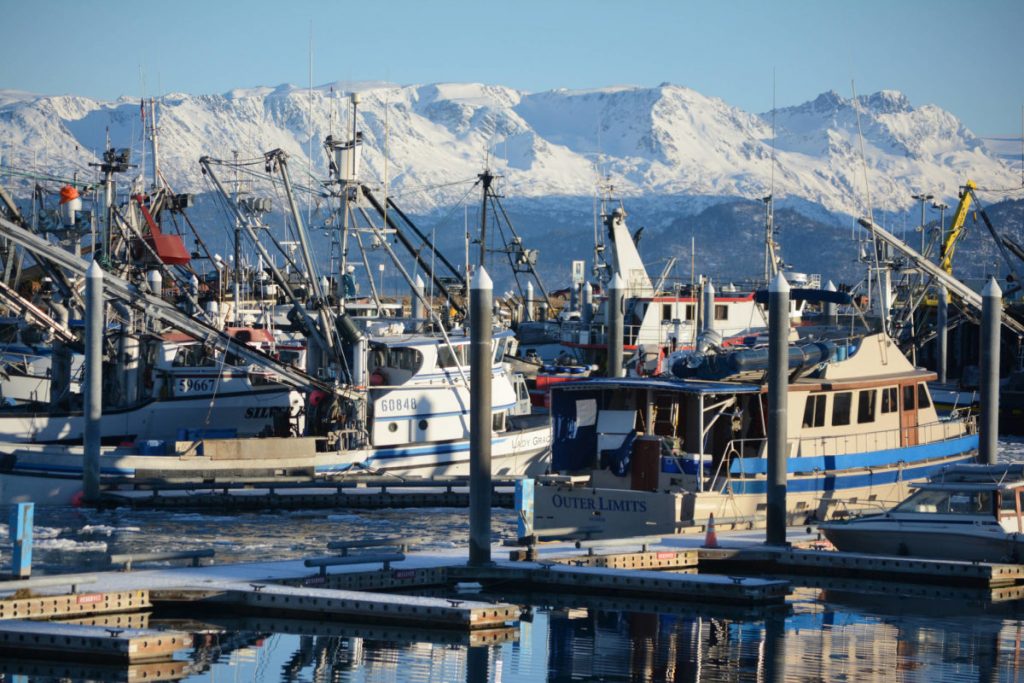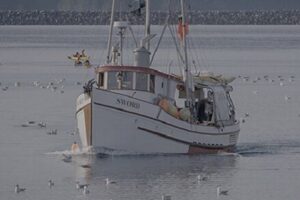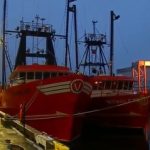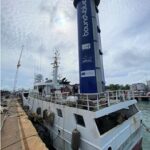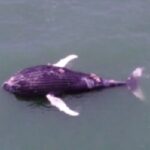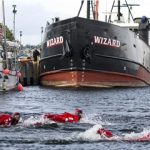Tag Archives: At-sea Processors Association
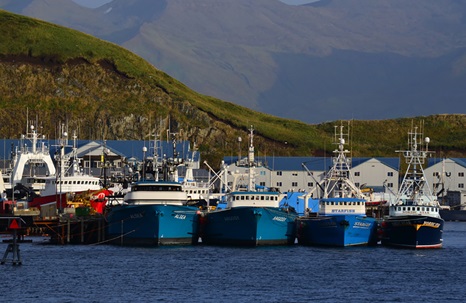
Biden administration rejects top Inslee choice for Alaska fish commission, reappoints trawl ally
The Biden administration has rejected a nominee for a key Alaska fisheries management post who could have tipped decisions toward the interests of tribes and conservation groups and away from the priorities of the large-boat, Seattle-based trawl industry. U.S. Commerce Secretary Gina Raimondo skipped over the top choice of Washington Democratic Gov. Jay Inslee, conservation advocate Becca Robbins Gisclair, and instead reappointed the last-ranked nominee on a slate of four candidates that Inslee offered: Anne Vanderhoeven, a trawl industry employee who has served on the panel for several years. Raimondo’s choice for the open North Pacific Fishery Management Council seat, which was confirmed Tuesday by Inslee’s natural resources advisor Ruth Musgrave, comes after what advocates describe as weeks of intense lobbying by supporters of both Gisclair and Vanderhoeven. more, >>CLICK TO READ<< 11:47
Unalaska, Aleutians East Borough oppose Rep. Peltola’s proposed trawling limitations
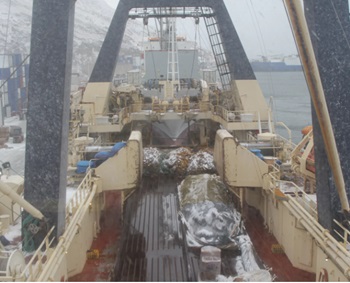 Communities in the Aleutians are pushing back against proposed legislation that would bring stricter regulations to the Bering Sea trawl fishery. The City of Unalaska and the Aleutians East Borough are among 53 organizations that signed onto a letter sent to U.S. Rep. Mary Peltola, urging her to withdraw H.R. 8507, a bill she sponsored in May. The proposed legislation aims to add new regulations to where trawling can take place across the United States, not only in Alaska. Trade organizations and some coastal communities whose economies rely on trawl fisheries have pushed back against the bill, asking the congresswoman to repeal it. “If enacted, H.R. 8507 would directly harm fishermen and coastal communities in Alaska and throughout our nation, along with countless other people who rely on a healthy domestic seafood sector for food, jobs, and their way of life,” the letter said. more, >>CLICK TO READ<< 13:28
Communities in the Aleutians are pushing back against proposed legislation that would bring stricter regulations to the Bering Sea trawl fishery. The City of Unalaska and the Aleutians East Borough are among 53 organizations that signed onto a letter sent to U.S. Rep. Mary Peltola, urging her to withdraw H.R. 8507, a bill she sponsored in May. The proposed legislation aims to add new regulations to where trawling can take place across the United States, not only in Alaska. Trade organizations and some coastal communities whose economies rely on trawl fisheries have pushed back against the bill, asking the congresswoman to repeal it. “If enacted, H.R. 8507 would directly harm fishermen and coastal communities in Alaska and throughout our nation, along with countless other people who rely on a healthy domestic seafood sector for food, jobs, and their way of life,” the letter said. more, >>CLICK TO READ<< 13:28
Federal fisheries managers hold Bering Sea pollock quota steady
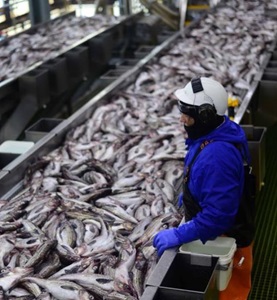 The total amount of pollock allowed to be scooped up by trawlers in the Bering Sea will stay the stotal allowable catchame in 2024. In its Dec. 9 meeting in Anchorage, the North Pacific Fishery Management Council moved to keep the total allowable catch for pollock at its current level of 1.3 million metric tons, a move that has generated criticism from conservationists, tribes, and the trawling industry alike. Alaska’s pollock fishery is responsible for the vast majority of salmon bycatch in the region. And amid alarming declines in returns of multiple species of salmon to Western Alaska rivers, the pollock trawl fishery has faced increasing criticism for its perceived role driving the crisis. But federal fisheries managers and the trawling industry pushed back, asserting that the claims are unfounded. more, >>click to read<< 08:12
The total amount of pollock allowed to be scooped up by trawlers in the Bering Sea will stay the stotal allowable catchame in 2024. In its Dec. 9 meeting in Anchorage, the North Pacific Fishery Management Council moved to keep the total allowable catch for pollock at its current level of 1.3 million metric tons, a move that has generated criticism from conservationists, tribes, and the trawling industry alike. Alaska’s pollock fishery is responsible for the vast majority of salmon bycatch in the region. And amid alarming declines in returns of multiple species of salmon to Western Alaska rivers, the pollock trawl fishery has faced increasing criticism for its perceived role driving the crisis. But federal fisheries managers and the trawling industry pushed back, asserting that the claims are unfounded. more, >>click to read<< 08:12
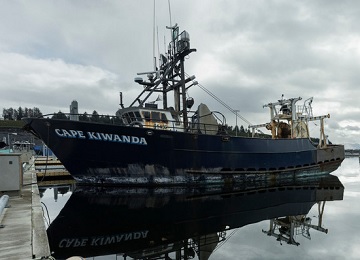
In Depth: Alaska’s Fisheries Are Collapsing. This Congresswoman Is Taking on the Industry She Says Is to Blame.
The late 1990s and early 2000s were boomtimes for halibut fishermen in Alaska. Over 80 million pounds of the flatfish were being harvested annually. Deckhands could earn $250,000 a season. The small boat harbor in the southcentral city of Homer, known as the “halibut capital of the world,” was bustling. Erik Velsko, 39, was one of those fishermen. He started buying annual shares in 2001 when the halibut population was at near historic highs. But within a few years, the stock plummeted by more than half and the quotas for commercial fishermen were slashed accordingly. Halibut wasn’t the only so-called directed fishery to experience such a catastrophic drop. The crab fleet — made famous in the reality show “Deadliest Catch” — has been mostly stuck in port for two years after the near total collapse of the snow crab population and the decades long decline of red king crab. Photos, >click to read< 11:42
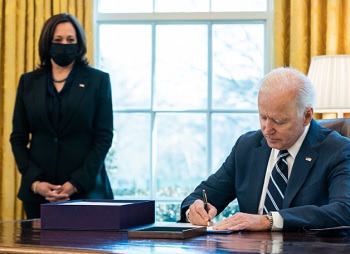
At-Sea Processors Association and Seafood Harvesters of America applaud “30×30” initiative
A Biden administration plan to conserve at least 30% of federal lands and oceans by 2030 is winning applause from the seafood industry, but questions abound elsewhere, raising political obstacles. Just about 12% of the nation’s land area is currently under some form of environmental protection, along with about 26% of the country’s ocean areas. The plan, an executive order issued by the Biden administration, and popularized as the “30×30” initiative, has won support from the harvester and processor sector of Alaska fisheries and others, (do you?) in that industry, but farmers and ranchers elsewhere remain skeptical. >click to read< 12:50

U.S. Coast Guard admits it failed to warn Bering Sea fishing fleet about known Russian military exercises
Adm. Charles Ray told a U.S. Senate panel Tuesday that the Coast Guard knew Russia was conducting military exercises in August and failed to inform members of the U.S. Bering Sea fishing sector, Alaska Public Media reported. “This was not our best day with regards to doing our role to look after American fishermen,” Ray said. “I’ll just be quite frank: We own some of this.” The captain of the fishing vessel, Northern Jaeger, believed he had no choice but to comply and sail five hours south,,, >click to read< 13:10

Seafood industry seeks protection from Russian military exercises in U.S. waters
U.S. Coast Guard capability to safeguard national interests and promote economic security in the Arctic will be the subject of a congressional hearing on Dec. 8, one in which Alaska’s commercial fishing entities have a special concern. “From our vantage point, on the front lines of a changing Arctic, a robust U.S. military presence to protect U.S. interests in the region is simply non-negotiable,” said Stephanie Madsen, executive director of At-Sea Processors. The trade association, based in Seattle, represents six member companies who own and operate 15 U.S. flag catcher/processor vessels who harvest Alaska Pollock in the Bering Sea and Aleutian Islands and Pacific whiting in Pacific Northwest coastal waters. >click to read< 08:26
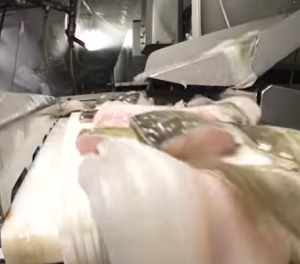
Coronavirus: Seafood processors respond to COVID-19 with added precautions
Seafood industry processors say they are in ongoing discussions with local, state and federal partners,,, The seafood industry talking points including working around the clock on prevention and response, coordinating with partners that include public health officials, preventing the spread of COVID-19 within Alaska and keeping seafood safe, said Stephanie Madsen, executive director of the At-Sea Processors Association. The Seattle-based trade association represents six member companies who own and operate 16 U.S. flagged catcher/processor vessels participating principally in the Alaska Pollock fishery and West Coast Pacific whiting fishery. The group includes American Seafoods Co., Arctic Storm Management Group LLC, Coastal Villages Region Fund, Glacier Fish Company LLC, Aleutian Spray Fisheries Inc. and Trident Seafoods. >click to read< 20:56
Fishing-industry groups blast Inslee over his picks for federal council
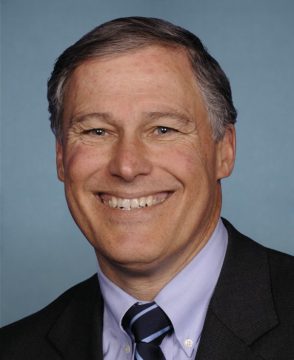 Gov. Jay Inslee’s handling of nominations for a federal fishery-council seat has come under attack from the leaders of major North Pacific fishing-industry groups, which have taken the unusual step of sending a complaint letter to the U.S. Secretary of Commerce.,, In their letter sent Tuesday, they asked Commerce Secretary Wilbur Ross to reject Inslee’s nominations and called for the governor to come up with some new names for a seat on the council. The industry backlash reflects the high stakes in fish politics, where the federal fishery council helps sets the rules for a billion-dollar groundfish harvest, much of which is caught and processed by Seattle-based companies. The letter is signed by the leaders of the Pacific Seafood Processors Association, At-Sea Processors Association, Groundfish Forum, and United Catcher Boats, whose membership collectively catches or processes most the groundfish. Read the article, click here 10:05
Gov. Jay Inslee’s handling of nominations for a federal fishery-council seat has come under attack from the leaders of major North Pacific fishing-industry groups, which have taken the unusual step of sending a complaint letter to the U.S. Secretary of Commerce.,, In their letter sent Tuesday, they asked Commerce Secretary Wilbur Ross to reject Inslee’s nominations and called for the governor to come up with some new names for a seat on the council. The industry backlash reflects the high stakes in fish politics, where the federal fishery council helps sets the rules for a billion-dollar groundfish harvest, much of which is caught and processed by Seattle-based companies. The letter is signed by the leaders of the Pacific Seafood Processors Association, At-Sea Processors Association, Groundfish Forum, and United Catcher Boats, whose membership collectively catches or processes most the groundfish. Read the article, click here 10:05
Trawlers defeat relief for halibut fishermen – Balk at Compensation
 The emergency measure was opposed by the At-sea Processors Association, United Catcher Boats, and other industry groups. The failed emergency measure was part of the voting to set quotas for Bering Sea groundfish species, including the billion dollar pollock fishery. Trawlers feared that a reduction in halibut bycatch limits for trawlers could shut them down early, leaving their fish in the water. But halibut fishermen complain that the trawlers are allowed to waste more than they’ll be allowed to catch for the high-value market, a policy called “unacceptable” by St. Paul mayor Simeon Swetzof. Read the rest here 21:08
The emergency measure was opposed by the At-sea Processors Association, United Catcher Boats, and other industry groups. The failed emergency measure was part of the voting to set quotas for Bering Sea groundfish species, including the billion dollar pollock fishery. Trawlers feared that a reduction in halibut bycatch limits for trawlers could shut them down early, leaving their fish in the water. But halibut fishermen complain that the trawlers are allowed to waste more than they’ll be allowed to catch for the high-value market, a policy called “unacceptable” by St. Paul mayor Simeon Swetzof. Read the rest here 21:08
Jim Gilmore, director of public affairs at At-sea Processors Association – MSC criticism not valid
The Alaska pollock fishery and the Marine Stewardship Council (MSC) have refuted claims made in a recent study that the sustainable seafood certification is too lenient. The Alaska pollock fishery, the largest fishery in the US in volume, were mentioned in the research as holding certification despite not complying with national law. continued

































